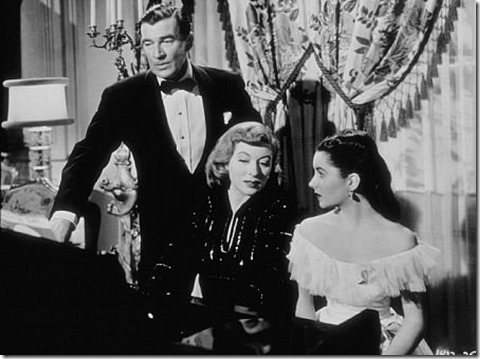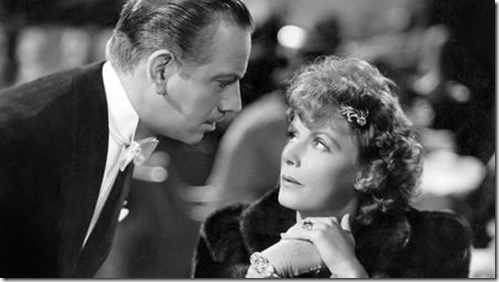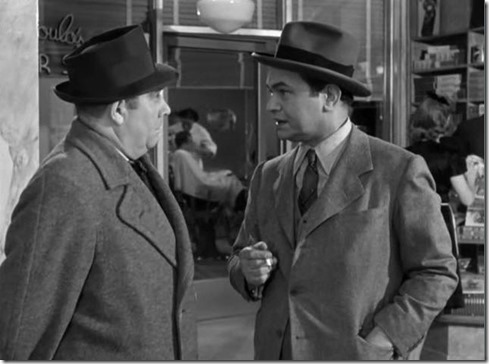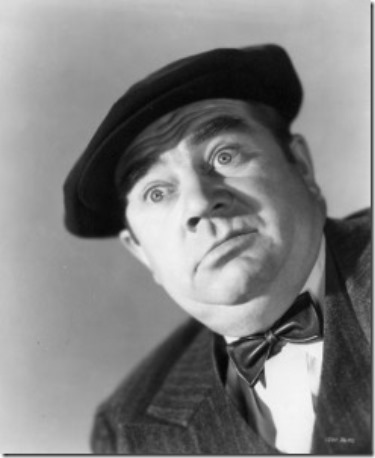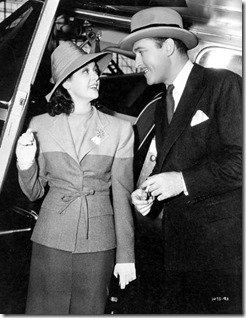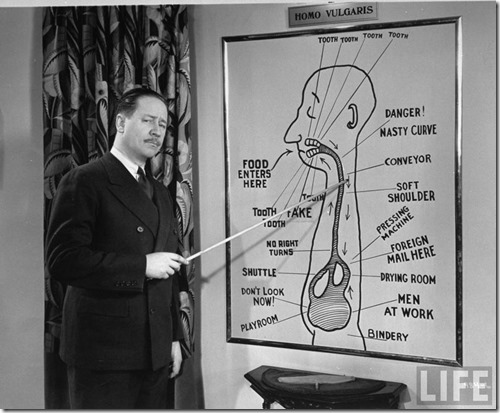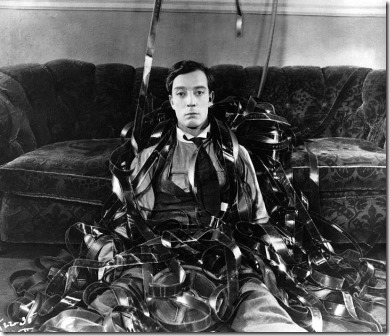 …since clearly the 3rd Annual took place a week before.
…since clearly the 3rd Annual took place a week before.
Regardless, that Sunday there we were, around 9:30am this time until, say, 10:00pm? (We all had an early Monday ahead of us). The slate, formed over the course of the day, was:
The Lady Eve (1941);
Sherlock, Jr. (1924);
Citizen Kane (1940);
La Belle et la Bête (1946);
Twentieth Century (1934);
and This is Spinal Tap (1984).
Some heavy hitters here, obviously, a couple of them by request, as we asked our friend if there were any omissions in her previous viewing career that she regretted. She said Citizen Kane almost immediately. The other, This is Spinal Tap, we knew from the conversation that led to her being invited for this event in the first place.
The other selections made the list because we knew of her love of romantic comedy. She isn’t one of those “I’ve never seen an old movie” people by any means, but again, we all have voids in our movie lives. (My own are numerous and daunting.) This gave us somewhere to begin – Sturges provides some of the first really intelligent American romantic comedy, “Beauty and the Beast” is the archetype on which almost all of them are based (being one of the few fairy tales wherein getting to know each other is even part of the plot), and Twentieth Century is kind of unjustly neglected. Sherlock, Jr. is in there because there’s just going to be some Keaton, Lloyd or Chaplin at all of these.
Most of these are well-documented, at this blog or elsewhere, so again, a few little thoughts, and then some surprising connections we noticed.
LITTLE THOUGHTS
-Such a thing of beauty, yet no matter how many times I see it, I just sort of forget the second half. Not in a bad way – it’s just that shorthand for this movie in my head is “them on the ship” and the rest is still fresh and surprising as I watch. Again;
-It’s Stanwyck’s movie in many ways (though my love for Charles Coburn grows as I age) but Henry Fonda is funny. Who knew, right? Again, still always surprising;
“Tell him to go peel an eel!” The eel that won for Yeel?
-Previous post here;
-Our friend’s reaction to her first Keaton was characterized by a general sort of repeated, amazed, “I really like this!” as if a world had been opened. We’ll pressure her into more, I’m sure.
-Poor Susan. That shot from her terrified, heavily made up face being barked at by her voice teacher through the stagehands in the flies and their nose-pinching review is so painful, no less so when Welles shows half of it again!;
-Like Coburn, my love for Cotton’s performance as Elderly Jed (“Sloppy Joe’s?”) continues to intensify with age. It’s so broad on one hand and so how-that-guy-would-be-around-strangers-years-later on the other. Brilliant;
-Is the second half of Kane’s life an attempt to recapture the night he met Susan (which is also the night his mother’s death was made real by all her belongings showing up in town)? She sang for him, he almost told her the Rosebud story – you can see it – things were good again for a couple of hours. He tries to make her keep singing, as if to prolong it in some weird public way, or to share that feeling with the world if you’re feeling more generously disposed toward his motives. She shouts “You never gave me anything that belongs to you, anything you care about!” He finds the snow globe after she leaves. I like to think he spends much of the rest of his Xanadu-doddering life digging through the uninventoried boxes looking for that damn Rosebud thing…
-What a thing of beauty. Unnecessary to write about, because it’s so clear and has such depth, yet so little explanation of anything, even basic geography or physics, that people frequently seem to demand (foolishly, I’d argue) in their storytelling. “None of that is the point! Just pay attention!” “Why does he even keep the horse if he could use the gloves?” “You are asking the wrong questions!”
-Josette Day. My Word. La Belle.
–Immediately another Beauty and the Beast story, except with two beasts, whose coupling at least saves other people from them;
-I haven’t threatened to close the iron door on nearly enough people lately;
-Also, Barrymore’s hair in this is one of the few things that make me regret baldness.
-This is one of those generational things I suppose, but I’ve seen this so many times that I scarcely need to watch it anymore, and yet, like Young Frankenstein. for example, it’s one of the rare comedies that doesn’t dry up once you know its jokes – the execution is so perfect that it becomes like rewatching some perfect double play but one that unfolds for ninety minutes;
-It was late in the game that I tracked the drummer names alongside the names of replacement Three Stooges. There are always more jokes here than you think.
And, of course…
UNEXPECTED CONNECTIONS
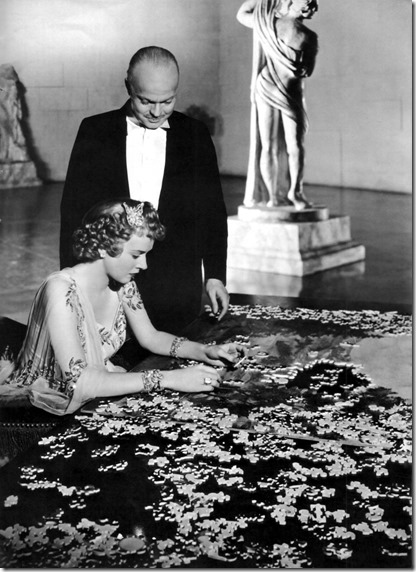 What the hell, beyond the aforementioned “Beauty and the Beast” threads, do the above have in common? Well, for starters:
What the hell, beyond the aforementioned “Beauty and the Beast” threads, do the above have in common? Well, for starters:
Swindlers, misdirection and stage magic pervade (The Lady Eve, Sherlock Jr., Citizen Kane, La Belle et la Bête) along with differently failed attempts at same (Twentieth Century, This is Spinal Tap – particularly “Rock & Roll Creation, I think);
Doubles, twins and reflections abound, from the obvious (The Lady Eve, Sherlock Jr., La Belle et la Bête) to the less so (the mirrors of Citizen Kane, the “none more black” album cover in This is Spinal Tap);
Bursting Spheres, from Kane’s snow globe to Buster’s 13 ball to Eve’s metaphorical social-sphere-busting from class to class. An argument could even be made for a certain green globule of a former drummer;
High-dollar checks are torn (or apparently torn) to bits (The Lady Eve, Citizen Kane, Twentieth Century), a gesture sort of lost in this debit card/PayPal era. Angelica Houston has the good sense to hang on to her Stonehenge payment;
Major plot unfoldings on a train (The Lady Eve, Twentieth Century) could just be chalked up to the period, but were still unplanned by the programmers;
Ushers apparently once brought the flowers down to the stage apron on opening night (Citizen Kane, Twentieth Century) – you get nice treatment when you don’t have armadillos in your trousers;
Mysterious castles with huge fireplaces, long hallways and broken skylights bumped nicely together in our Citizen Kane/La Belle et la Bête double feature (we’ll throw This is Spinal Tap in there for hallways as well – under the Xanadu (!!!) Star Theater – “Hello, Cleveland!”);
Women used to ride sidesaddle (The Lady Eve, La Belle et la Bête);
and Sticky papers make good comedy (Sherlock Jr., Twentieth Century).
And for the record, the menu involved our guest’s homemade pumpkin bread, some sort of fancy coffee (I don’t know – I’m a tea drinker), butternut squash chowder, and again with the Chinese takeout. No Manhattans this week – the cocktail turned out to be, thanks to the acquisition of some green chartreuse, the festival-appropriate Bijou, which I highly recommend.
There probably won’t be another of these festivals for a while – I’m involved in a show this month and starting a long process on two others throughout December-February. This blog may slow a bit, but it will not stop, so the five people who read this thing need not fear.
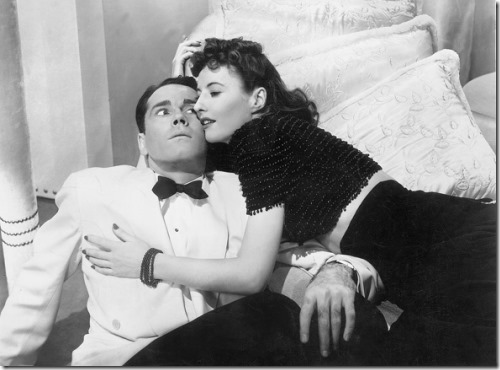
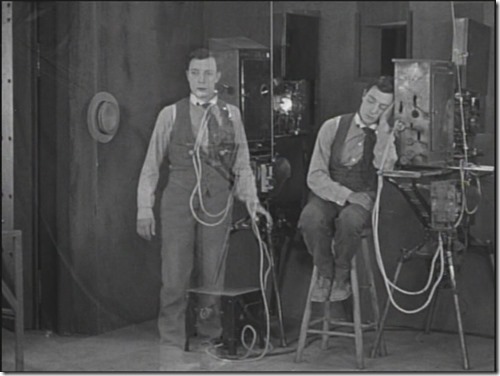
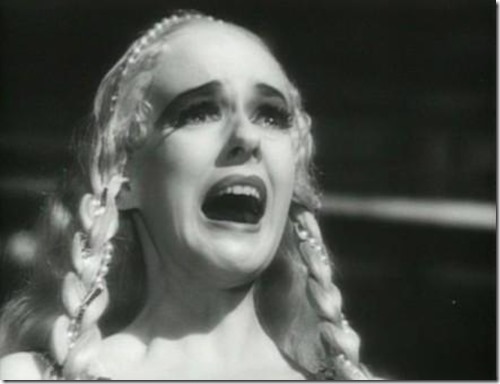
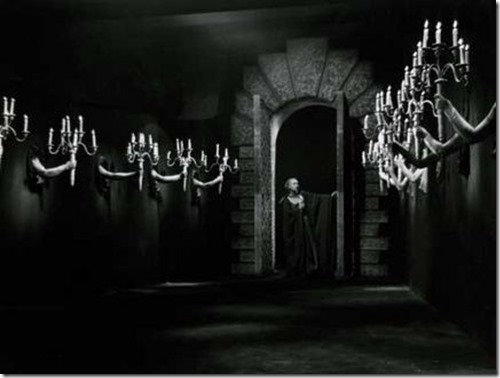
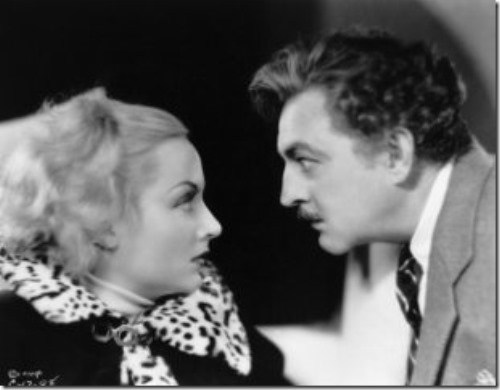
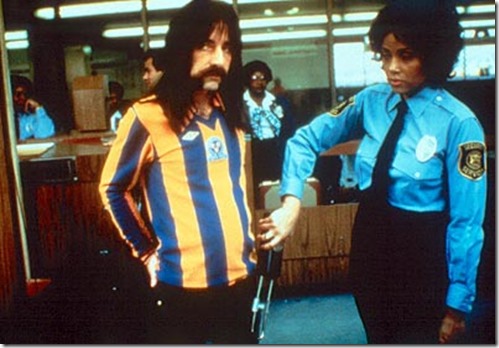
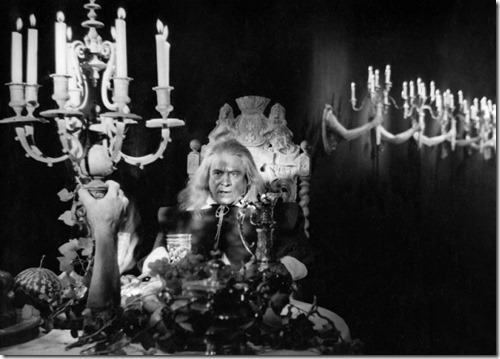
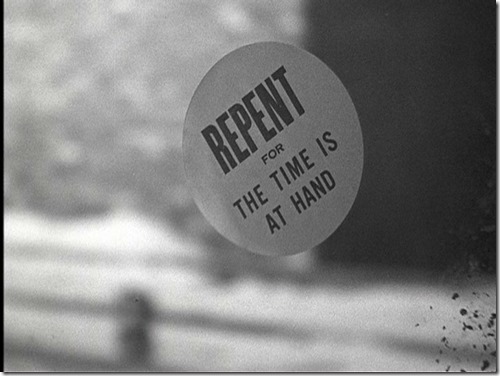

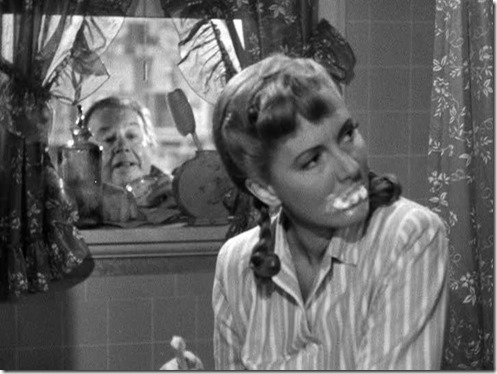
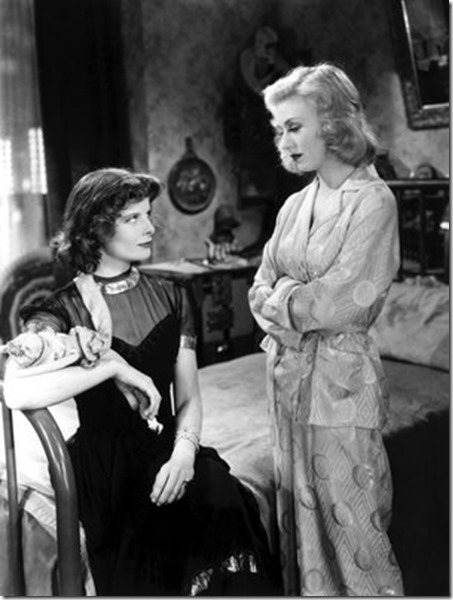
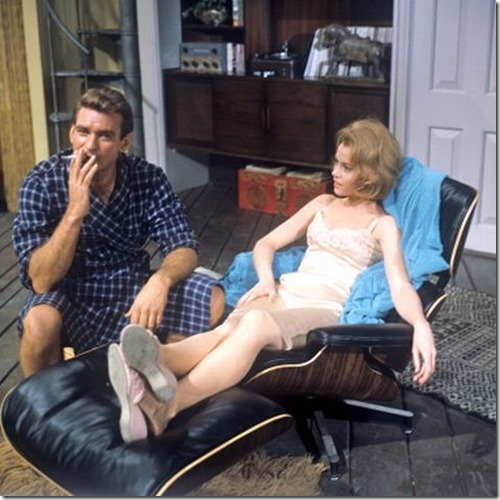
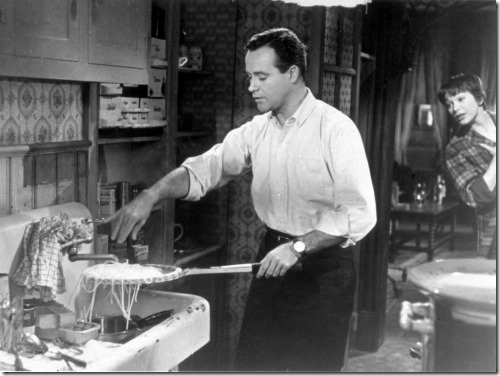
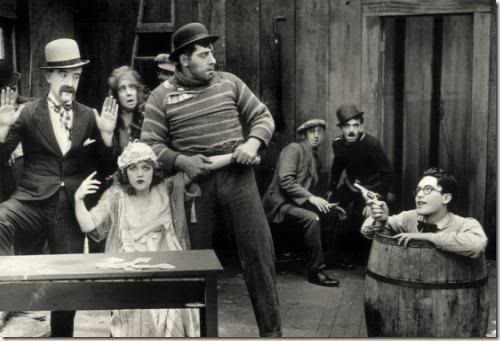
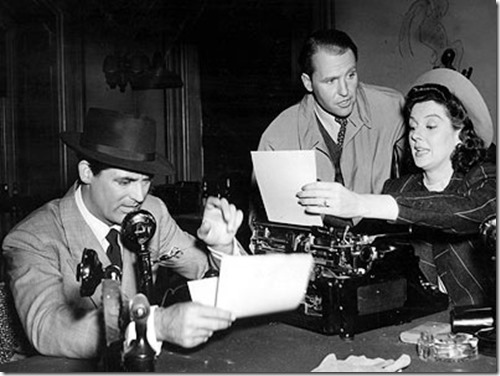
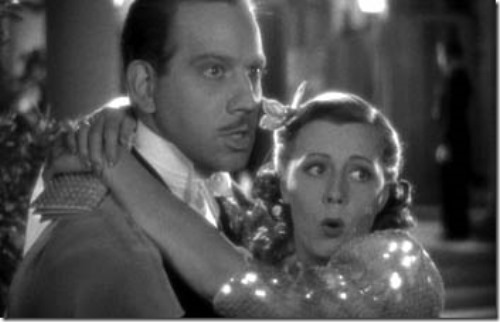
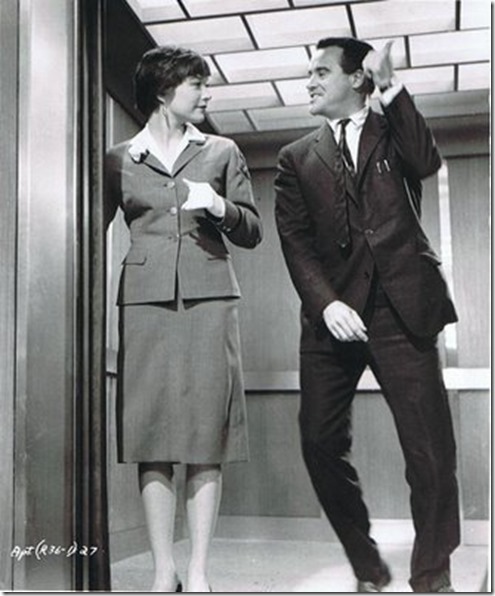
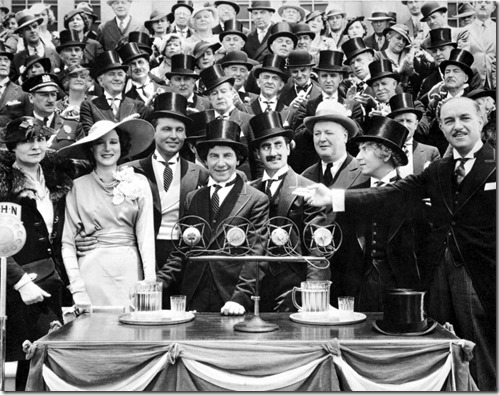
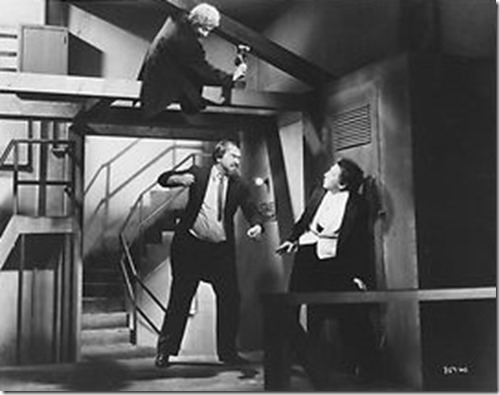
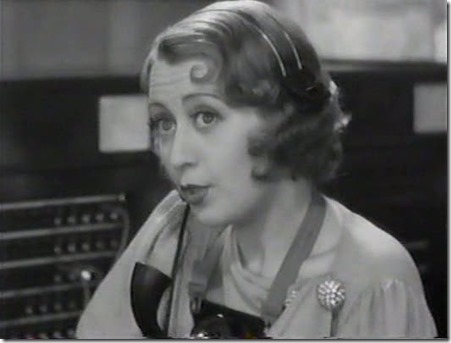
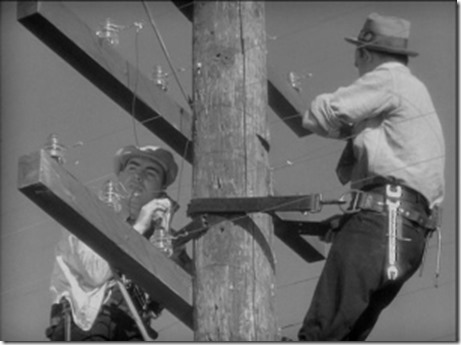
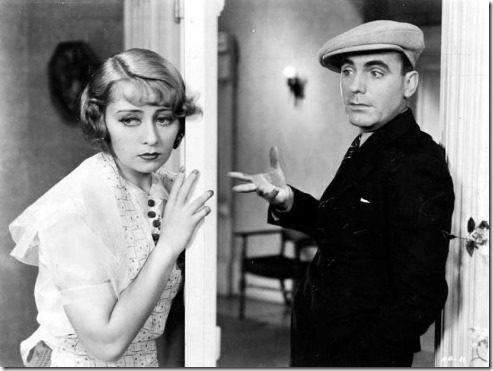
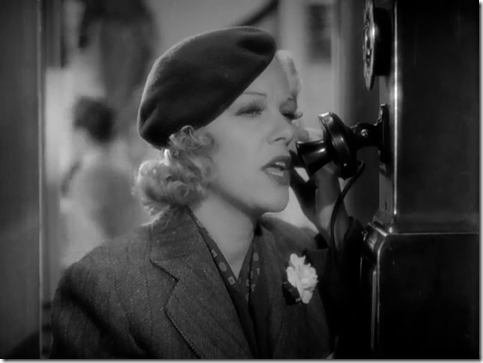
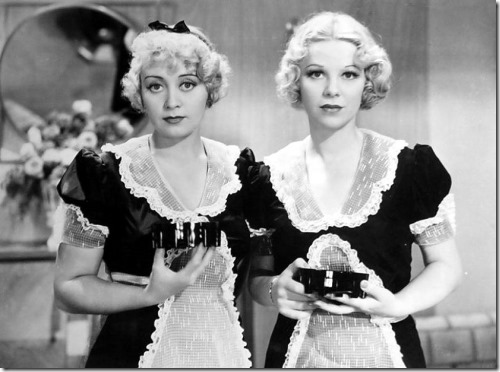
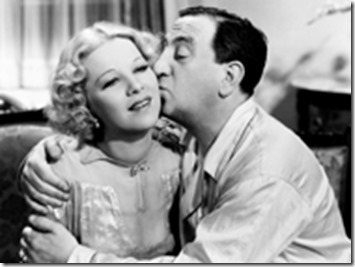
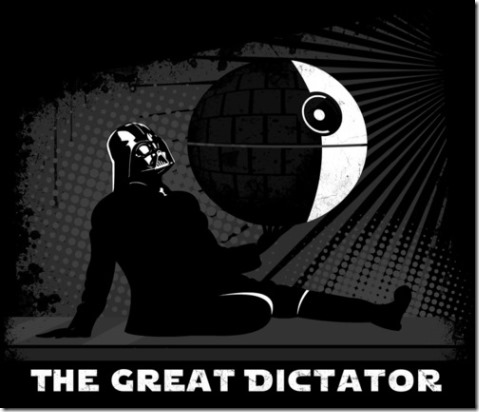
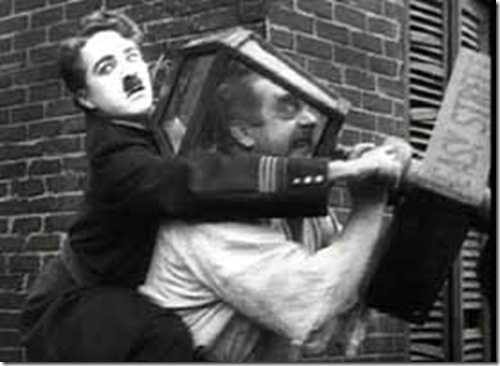
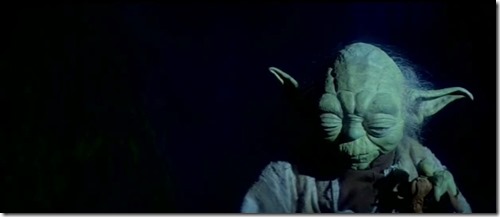
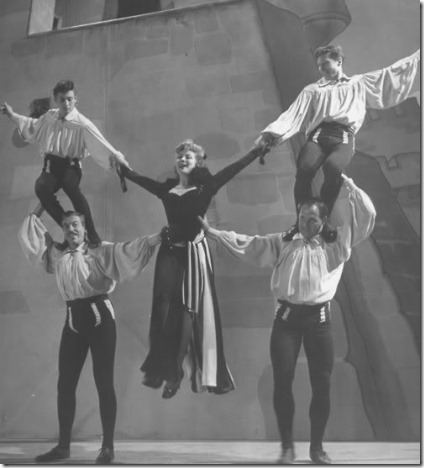 Julia Misbehaves
Julia Misbehaves